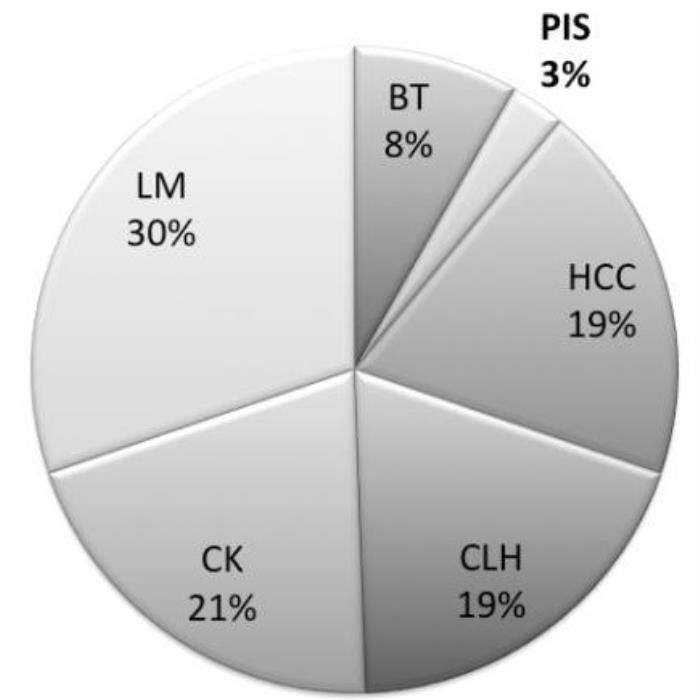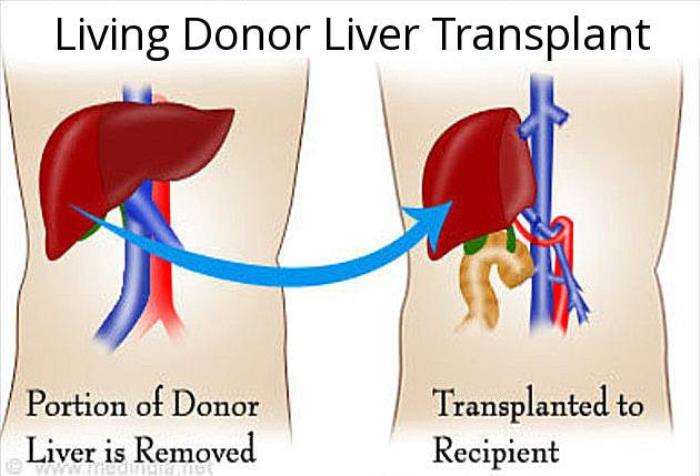Liver surgery encompasses various procedures, among which liver transplant and liver resection are prominent. A liver transplant involves replacing a diseased liver with a healthy one from a donor, while liver resection entails the surgical removal of a portion of the liver. Both procedures aim to address severe liver conditions but differ significantly in their indications, techniques, and recovery processes.
Medical disclaimer: This content is for general awareness and does not replace a doctor’s consultation. For diagnosis or treatment decisions, consult a qualified specialist.
Indications for Liver Transplant Surgery
Liver transplant surgery is typically indicated for patients suffering from end-stage liver disease, including conditions such as cirrhosis, hepatitis, and liver cancer. Patients with acute liver failure or severe metabolic disorders may also qualify. The primary goal of a liver transplant is to restore liver function and improve the patient’s quality of life when other treatments have failed.
Indications for Liver Resection Surgery
Liver resection surgery is indicated primarily for patients with localized liver tumors that can be surgically removed. Conditions such as hepatocellular carcinoma and metastatic liver cancer may necessitate resection. It is crucial that the remaining liver tissue is healthy enough to sustain normal liver function post-surgery. Resection is often considered when the cancer is confined to a specific area of the liver.

Preoperative Assessments for Liver Transplant
Before a liver transplant, patients undergo extensive preoperative assessments, including blood tests, imaging studies, and evaluations of the heart and lungs. These tests help determine the patient's overall health and suitability for transplantation. Psychosocial evaluations are also performed to assess the patient’s readiness for the challenges of post-transplant life, including medication adherence and lifestyle changes.
Preoperative Assessments for Liver Resection
Preoperative assessments for liver resection focus on evaluating the extent of the disease and the functionality of the remaining liver. Imaging studies like CT scans and MRIs are crucial for mapping the tumor and assessing liver function. Liver function tests, along with a thorough medical history and physical examination, help ensure that the patient can tolerate the surgery and recover effectively.
Surgical Techniques Used in Liver Transplantation
The surgical technique for liver transplantation involves several steps, including the removal of the diseased liver and the implantation of the donor liver. This complex procedure requires meticulous surgical skill and is typically performed under general anesthesia. The surgery can last several hours, and the patient is closely monitored for any complications during and after the procedure.
Surgical Techniques Used in Liver Resection
Liver resection involves the surgical removal of a portion of the liver. The technique varies based on the tumor's size and location. Surgeons may use traditional open surgery or minimally invasive techniques, such as laparoscopic surgery. The choice of technique depends on the tumor's characteristics and the patient's overall health. The goal is to achieve clear margins while preserving as much healthy liver tissue as possible.
Postoperative Care Following Liver Transplant
Postoperative care after a liver transplant is critical for the success of the procedure. Patients require close monitoring for signs of rejection and infection. Immunosuppressive medications are prescribed to prevent rejection of the donor liver. Regular follow-up appointments are essential to assess liver function and manage any complications that may arise during recovery.
Postoperative Care Following Liver Resection
After liver resection, patients are monitored for complications such as bleeding, infection, and liver failure. The length of hospital stay may vary depending on the extent of the surgery and the patient's recovery. Patients are advised to follow a specific diet and gradually resume physical activities. Regular follow-ups are necessary to assess liver function and ensure there are no signs of recurrence of the underlying disease.
Risks and Complications Associated with Liver Transplant Surgery
Liver transplantation carries several risks, including surgical complications, organ rejection, and infections. Long-term complications may include cardiovascular disease and diabetes due to immunosuppressive therapy. Patients must be educated about the signs of rejection and the importance of lifelong follow-up care to mitigate these risks effectively.
Risks and Complications Associated with Liver Resection Surgery
Complications following liver resection may include bleeding, bile leaks, and liver failure. The extent of the resection and the patient's pre-existing liver function significantly influence the risk of complications. Patients should be informed about the potential for these risks and the importance of adhering to postoperative care instructions to promote recovery.
Long-Term Outcomes of Liver Transplant Surgery
The long-term outcomes of liver transplantation are generally favorable, with many patients experiencing significant improvements in quality of life and liver function. However, outcomes can vary based on factors such as the underlying disease, donor organ quality, and adherence to immunosuppressive therapy. Regular follow-up care is essential to monitor liver function and manage any long-term complications.
Long-Term Outcomes of Liver Resection Surgery
Long-term outcomes following liver resection depend on the underlying condition and the completeness of the tumor removal. Patients with early-stage liver cancer often have excellent survival rates, while those with more advanced disease may face a higher risk of recurrence. Ongoing surveillance and follow-up care are crucial to detect any signs of recurrence or complications.
Cost Considerations for Liver Transplant Surgery
The financial implications of liver transplantation can be significant, encompassing costs for the surgery, hospital stay, medications, and follow-up care. In India, the cost can vary widely depending on the healthcare facility and the patient’s specific needs. Patients should explore options for financial assistance and insurance coverage to help manage these expenses.
Cost Considerations for Liver Resection Surgery
The cost of liver resection surgery is generally lower than that of liver transplantation but can still be substantial. Expenses include surgical fees, hospitalization, and postoperative care. Patients should discuss costs with their healthcare provider and explore insurance coverage options to ensure they understand their financial responsibilities before undergoing surgery.
Patient Selection Criteria for Liver Transplant
Patient selection for liver transplantation is guided by strict criteria, including the severity of liver disease, overall health, and the absence of contraindications such as active substance abuse or uncontrolled infections. A multidisciplinary team evaluates each case to determine eligibility, ensuring that the benefits of transplantation outweigh the risks involved.

Patient Selection Criteria for Liver Resection
Selection criteria for liver resection focus on the tumor's characteristics and the patient's liver function. Candidates typically have localized tumors and sufficient liver reserve to tolerate the surgery. Comprehensive evaluations, including imaging and liver function tests, are critical in determining the appropriateness of resection as a treatment option.
Impact of Lifestyle Changes After Liver Transplant
Post-liver transplant, patients must adopt significant lifestyle changes to ensure the success of the transplant. These changes include adhering to a strict medication regimen, maintaining a healthy diet, and avoiding alcohol and other harmful substances. Regular exercise and routine medical check-ups are also vital in promoting overall health and preventing complications.
Long-Term Outcomes of Liver Transplant Recipients in India
Discover the long-term outcomes of liver transplant recipients in India. With advancements in medical care and immunosuppressive therapy, patients can lead healthy, fulfilling lives. This article highlights success stories, challenges, and factors that contribute to long-term survival and quality of life after transplantation.
Foods to Include and Avoid After a Liver Transplant
Understand the dietary recommendations for liver transplant patients. Including nutrient-rich foods like fruits, vegetables, and lean proteins can support recovery, while avoiding processed foods, alcohol, and high-sugar items can prevent complications. Learn how to create a balanced meal plan for optimal liver health.
Impact of Lifestyle Changes After Liver Resection
After liver resection, patients are encouraged to make healthy lifestyle changes to support recovery and liver health. This includes following a balanced diet, engaging in regular physical activity, and avoiding alcohol and tobacco. Patients should also attend regular follow-up appointments to monitor liver function and address any concerns that may arise during recovery.
Best Liver Transplant in India
The Best Liver Transplant in India provides life-saving treatment for patients with end-stage liver disease, offering advanced surgical techniques and comprehensive post-transplant care for successful recovery.
Best Liver Transplant Hospitals in India
The Best Liver Transplant Hospitals in India are equipped with cutting-edge technology and expert medical teams, ensuring top-notch care and optimal recovery for liver transplant patients.
Liver Transplant Cost in India
The Liver Transplant Cost in India offers an affordable solution for patients needing liver transplantation, ensuring access to world-class care at competitive pricing.
Best Liver Transplant Surgeons in India
The Best Liver Transplant Surgeons in India are highly skilled in performing liver transplants, providing precise surgeries and personalized care to ensure the best possible outcomes for their patients.
FAQs About Liver Transplant and Liver Resection Surgery
What is the main difference between liver transplant and liver resection?
The main difference is that liver transplant involves replacing a diseased liver with a healthy one, while liver resection involves removing a portion of the liver. Transplantation is typically for end-stage liver disease, whereas resection is for localized tumors.
How long is the recovery period for each procedure?
Recovery from liver transplant surgery usually takes several months, with close monitoring for complications. Recovery from liver resection can vary but generally takes a few weeks, depending on the extent of the surgery and the patient’s overall health.
Are there any dietary restrictions after these surgeries?
Yes, patients are advised to follow specific dietary guidelines tailored to their condition. After a liver transplant, a balanced diet is crucial to support healing and manage medication side effects. After liver resection, patients may need to avoid certain foods that could strain the liver.
What are the chances of tumor recurrence after liver resection?
The chances of tumor recurrence after liver resection depend on several factors, including the type of cancer and how completely the tumor was removed. Regular follow-up care is essential to monitor for any signs of recurrence.
Can liver transplant patients drink alcohol?
No, liver transplant patients are advised to avoid alcohol entirely, as it can damage the liver and interfere with medications that prevent organ rejection.
Exploring genetic engineering's potential to prevent liver diseases and reduce transplant needs, focusing on ethical, technological, and clinical challenges. Genetic Engineering for Liver Disease Prevention: Can We Avoid Transplants?
3D printing may revolutionize liver transplants, potentially reducing waiting lists and improving patient outcomes. 3D Printing of Organs: Can It Replace Liver Transplants?
Enhancing organ donation awareness in India through education, community engagement, and robust support systems. How to Increase Awareness About Organ Donation in India